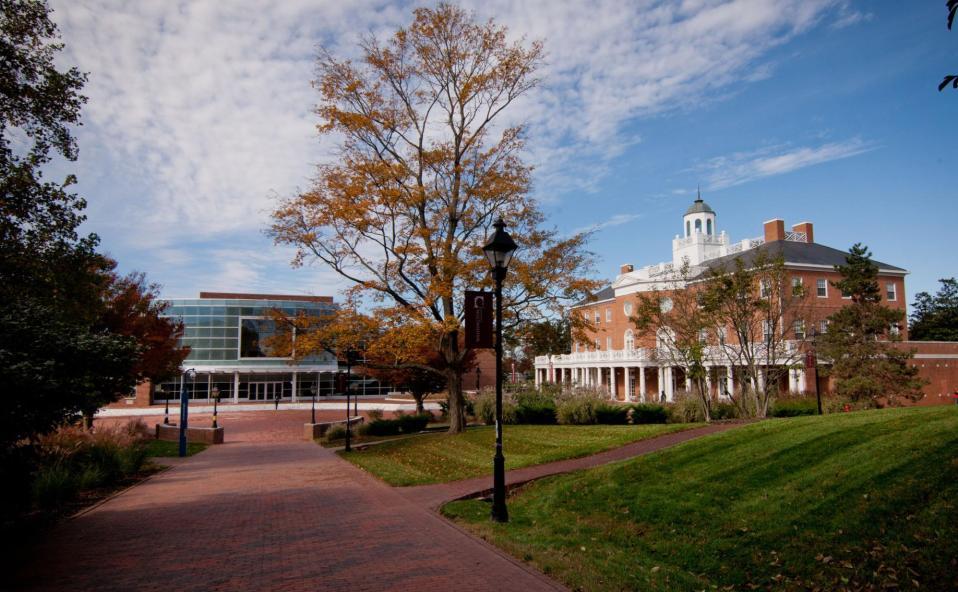Numerous four-year colleges and universities across Maryland — including Washington College, Salisbury University, and the University of Maryland Eastern Shore — are either extending spring break or asking students to stay off campus and take classes remotely when instruction resumes.
The moves come as higher education officials weigh their responses to COVID-19 and concerns about transmission risks among students, who are frequent travelers and who live closely together.
Maryland has now reported eight confirmed coronavirus cases — none on the Eastern Shore and most connected to international travel.
University System of Maryland Chancellor Jay A. Perman issued guidance Tuesday to its 12 member institutions urging them to keep students off campus for at least two weeks after spring break (which is scheduled for Saturday, March 14, through Sunday, March 22) and to prepare to deliver instruction remotely during that time.
“The health of our students, faculty, and staff is my paramount concern as the University System of Maryland (USM) develops protocols in response to the coronavirus outbreak,” Perman said in a statement. “Given the residential nature of the universities within the system, USM must apply an abundance of caution to ensure that students and employees are protected and safe.”

Washington College President Kurt Landgraf
At Washington College, spring break, which began March 7, will now extend one additional week until March 23, President Kurt Landgraf said in a letter to students, faculty and staff.
“Even though there are no known cases of coronavirus on campus or on Maryland’s Eastern Shore, campus communities are particularly susceptible to the spread of this novel virus because of frequent travel among this population and because our students live in close quarters,” Landgraf wrote.
“Out of an abundance of caution, we are preparing to conduct all coursework online in lieu of face-to-face instruction,” he wrote. “We have every intention to complete the academic semester on the same schedule as originally planned. In the coming days, faculty will communicate to students how their courses will proceed.”
Chesapeake College currently has not announced any plans to close, noting its students commute to campus and are unlikely to be traveling to locations where the virus is prevalent.
In a Wednesday morning message to the college community, Chesapeake College said the “university system is in essence creating a buffer period, like a quarantine, to minimize the spread of the virus that could be caused when the students return to campus.
“As a commuter campus, most students are not traveling out of our region to areas where incidences of the virus are prevalent.”
At Salisbury, classes continue today, but are canceled Thursday and Friday so faculty may prepare for online instruction.
Students have been told to take all essential belongings, including medications and other materials, when leaving for spring break.
From March 23-April 3, instruction will be delivered online in courses for which this is possible, according to Salisbury and UMES. Students at both schools are asked not to return to campus until Saturday, April 4.
Salisbury and UMES have limited meetings and large gatherings, effective immediately, and will encourage social distancing and remote learning. UMES also has cancelled all on-campus events for the next two weeks.

Gov. Larry Hogan speaks Tuesday, March 10, at a press conference during an emergency cabinet meeting at the Maryland State House. Photo by Jeff Barnes/Capital News Service
In a press conference Tuesday in front of his full cabinet, Gov. Larry Hogan said he expects the number of confirmed cases to rise throughout the country as more people are tested.
“This problem continues to evolve and escalate rapidly,” he said, calling the response an “all hands on deck operation.”
Hogan declared a state of emergency Thursday, giving the state flexibility to better coordinate among different agencies and to utilize various resources to help fight the disease, which continues to spread in Maryland.
Hogan also submitted emergency legislation, passed unanimously last week by the Maryland Senate and the House of Delegates, which would allow the state to transfer up to $50 million from its rainy day fund.
COVID-19 is a respiratory disease caused by a new coronavirus, a family of viruses that can also cause diseases such as SARS (severe acute respiratory syndrome) and MERS (Middle East respiratory syndrome).
Older people and those who have serious chronic medical conditions such as heart disease, diabetes and lung disease may be at higher risk, according to the Centers for Disease Control.
Earlier Tuesday, Hogan said during his press conference, he met with representatives from the state’s long-term care community. In hopes of preventing an outbreak similar to the one in a Washington state nursing home where 18 people have died, Hogan said, facilities should limit visitors, staff members should avoid international travel and facilities should use online methods to facilitate communication.
As of March 10, there have been 647 reported cases of COVID-19 and 25 deaths in the United States in 36 jurisdictions, including Washington, D.C., according to the CDC website.
Hogan announced March 3 that the state’s Public Health Laboratory was approved for COVID-19 testing, which allows local cases to be tested and diagnosed more quickly in the Maryland Department of Health’s Baltimore labs rather than waiting for results from the Centers for Disease Control labs in Atlanta.
Maryland Senate President Bill Ferguson, D-Baltimore, and Sen. Clarence Lam, D-Baltimore and Howard counties, introduced legislation that would allow for telehealth services to treat patients remotely, restrict price gouging — of food, water, medicine, cleaning supplies and more — and allow for those who may not have insurance or full coverage to get tested and receive vaccines when available.
“We’re seeing rising cases of COVID-19 throughout the state,” Lam said. “I think the legislature needs to take some proactive steps to be able to empower the governor with the tools that he needs to really respond to this public health crisis.”
Senate bill 1080 was cross-filed by House Speaker Adrienne Jones, D-Baltimore County, as HB 1663 Monday night.
“It does make sure that we do not forget those that are most vulnerable, and that includes folks that may not have insurance … you can still get tested,” Lam told Capital News Service. “And once we have a vaccine, which is probably a year out, it also says that they would not have to pay for that vaccine.”
Lam added that he expects the legislation to advance in the General Assembly this week.
As of March 9, the World Health Organization reports 109,577 confirmed cases of COVID-19 and 3,809 deaths in 104 countries/territories/areas.
The University of Maryland Medical System on Tuesday announced changes to the visitor policy at its 13 system hospitals and other healthcare facilities.
According to a press release, all UMMS visitors must check in at the front desk, visitors younger than 18 will be limited, adult visitors are limited to one per patient, visitors may be screened for flu-like symptoms and denied access if those symptoms are present, and visitors with international travel may not visit until 14 days after returning to the United States.
Jeff Barnes, Hugh Garbrick and Wesley Brown of the Capital News Service contributed to this report.



[…] News source […]